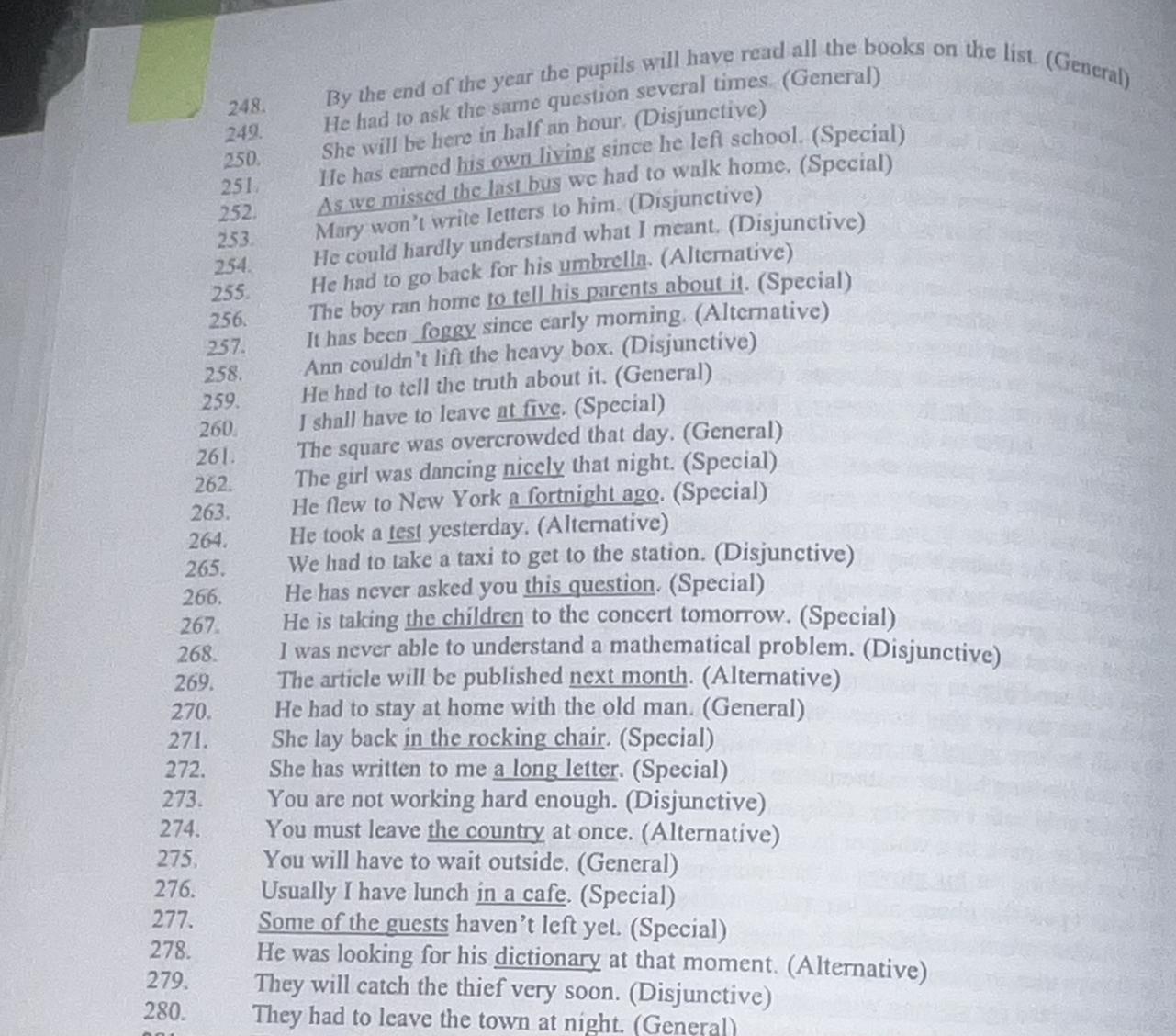Ответы 1
Ответ: By the end of the year the pupils will have read all the books on the list. (General)
He had to ask the same question several times. (General)
She will be here in half an hour. (Disjunctive)
He has earned his own living since he left school. (Special)
As we missed the last bus we had to walk home. (Special)
Mary won't write letters to him. (Disjunctive)
He could hardly understand what I meant. (Disjunctive)
He had to go back for his umbrella. (Alternative)
The boy ran home to tell his parents about it. (Special)
It has been foggy since early morning. (Alternative)
Ann couldn't lift the heavy box. (Disjunctive)
He had to tell the truth about it. (General)
I shall have to leave at five. (Special)
The square was overcrowded that day. (General)
The girl was dancing nicely that night. (Special)
He flew to New York a fortnight ago. (Special)
He took a test yesterday. (Alternative)
We had to take a taxi to get to the station. (Disjunctive)
He has never asked you this question. (Special)
He is taking the children to the concert tomorrow. (Special)
I was never able to understand a mathematical problem. (Disjunctive)
The article will be published next month. (Alternative)
He had to stay at home with the old man. (General)
She lay back in the rocking chair. (Special)
She has written to me a long letter. (Special)
You are not working hard enough. (Disjunctive)
You must leave the country at once. (Alternative)
You will have to wait outside. (General)
Usually I have lunch in a cafe. (Special)
Some of the guests haven't left yet. (Special)
He was looking for his dictionary at that moment. (Alternative)
They will catch the thief very soon. (Disjunctive)
They had to leave the town at night. (General)
Use code with caution. Learn morecontent_copyHere is a brief explanation of each sentence type:General sentences make a statement that is true for all cases or for most cases. For example, "The pupils will have read all the books on the list by the end of the year."Special sentences make a statement that is true for a specific case or for a specific group of cases. For example, "He has earned his own living since he left school."Disjunctive sentences express a choice between two or more possibilities. For example, "She will be here in half an hour or she will be late."Alternative sentences express two or more possibilities that are not mutually exclusive. For example, "He had to go back for his umbrella or he would get wet."
Объяснение:
ответы на свои вопросы

вопросы?


